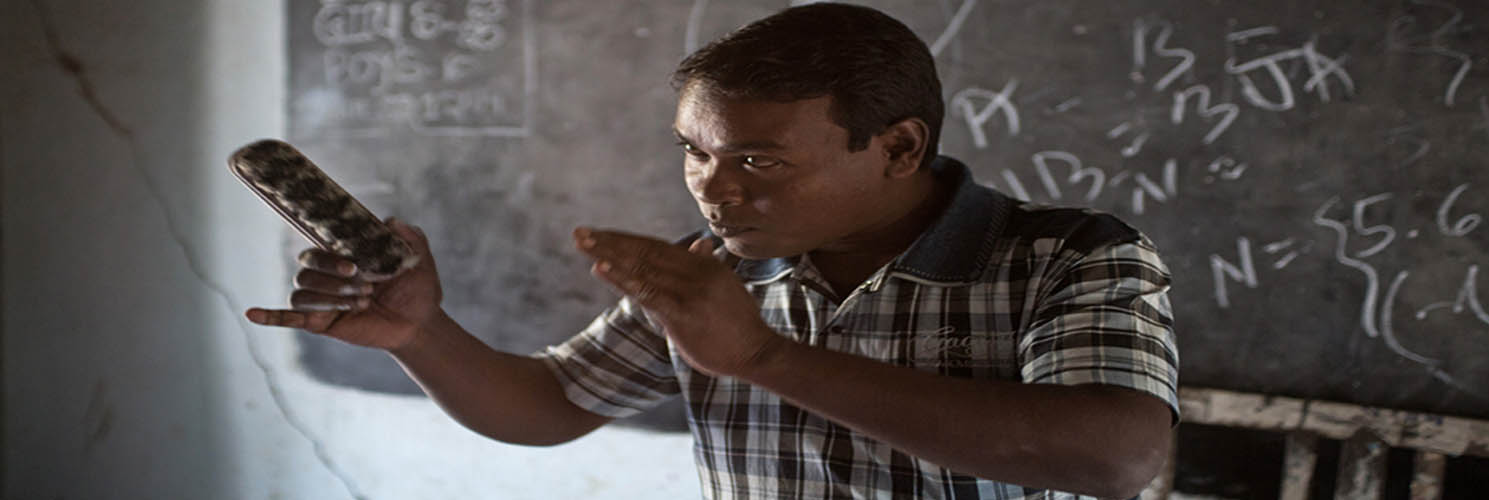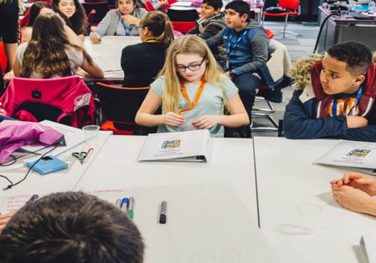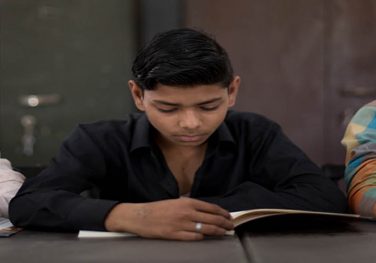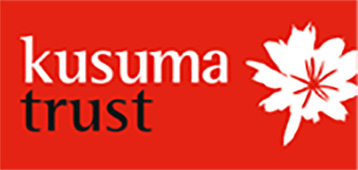Teacher Professional Development Programme Evaluation
Evaluating the effectiveness of our Teacher Professional Development programme
Improving the quality of secondary education in India has been a key focus for the Kusuma Trust. We believe that for students to achieve their best results, their teachers must have effective training, support and resources.
That’s where ‘Udbhav’, our Teacher Professional Development programme, comes in. We trained teachers to use more up to date, interactive teaching methods in order to actively engage students in their learning.
Teachers were provided with new learning resources and offered mentoring to support them to adopt recommended teaching methods in their classrooms, such as making lessons more relevant to students’ own lives, playing games, and encouraging students to speak up and solve problems.
Why was the Teacher Professional Development programme needed?
A survey by ASER (2012) showed that, despite near universal access to primary education in India, students in government primary schools had very low literacy and numeracy skills. The Kusuma Schools Partnership Initiative (KSPI) set out to change this. It focused on improving the quality of teaching in order to raise student attainment in maths, English and Science in 50 government secondary schools (25 in Hardoi, Uttar Pradesh, and 25 in Sambalpur, Odisha).
Key findings
- In year one, there’s promising evidence that the programme has a positive impact on teaching practice: Teacher quality (measured on lesson preparation, facilitation skills and student participation) was higher in KSPI schools than comparison schools in both districts.
- Teachers who participated in Kusuma teacher training were among the top performers in both
- But there was no direct link between teacher performance and student attainment. Other factors, such as student access to private tuition, had a key role to play.
- In year two, improved teacher performance began to have a positive impact on student learning levels. Average student scores were higher in Kusuma Schools Partnership Initiative schools compared with ‘light touch’ schools in Hardoi – reversing the pattern of the 2015 baseline assessment.
- Teachers reported an increase in confidence, motivation and awareness of more innovative teaching strategies.

About the research
To assess the impact of the programme, a baseline evaluation was carried out in 2015 in 100 schools: 50 KSPI schools (25 in Sambalpur and 25 in Hardoi) and 50 comparison schools (25 in Hardoi and 25 in Sambalpur). A follow-up evaluation was conducted one year later in KSPI and comparison schools in Hardoi district only. Poor weather conditions prevented completion of the evaluation in Sambalpur district. The research aimed to answer two key questions:
- Does the teacher training and mentoring support lead to improved teaching methods in the classroom?
- Do these teaching methods have a positive impact on student learning?
Kusuma commissioned independent consultants to assess student learning, observe teaching practice in the classroom and conduct focus groups and individual interviews with students, teachers and other key stakeholders.
What lessons were learned?
Students were positive about teachers who encouraged them to take part in lessons. However, some students still found lessons difficult to understand regardless of the teaching method used. This showed us that remedial education is vital if students are going to benefit from secondary education. We launched a Secondary School Readiness Programme to prepare students with the foundational skills they need to transition from primary to secondary school. We also learned that Head teachers have a key role to play helping put good teaching methods into practice. That’s why we made school leadership and governance a focus of our work in 2016-17. We offered training for School Management and Development Committee members to encourage the involvement of the wider community in school governance and strengthen the accountability of schools to the communities they serve.
For more key findings, see our research summaries:
Download the research summary for Year 1 here
Download the research summary for Year 2 here
“Kusuma’s teacher professional development programme was a bold attempt to transform teaching practice in KSPI schools to improve student learning. What we learned from this experiment inspired the development of Kusuma’s innovative Secondary School Readiness Programme and helped us to understand the critical role of school leadership in improving teaching and learning.”
More Success Stories

Research Schools Network

JPAL: Evaluation of our Secondary School Readiness Programme

